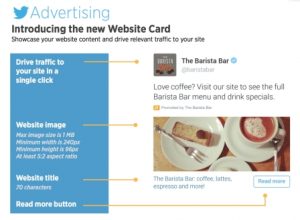
When it comes to search engine optimization (SEO), it can often feel like you are taking on an almost insurmountable task. With so many webpages, content and users online, how can you stand out? SEO may feel small in the grand scheme of the online universe, but when practiced and applied effectively, it can have a major impact on the reach and success of your content marketing
“It’s the little details that are vital. Little things make big things happen.” – John Wooden
One of the smallest but most impactful places to improve your SEO is in your links. Links are a root of strong SEO because they establish credibility and authority. A strong link that’s optimized correctly will improve essential SEO factors like Domain Authority – Moz’s 1-100 score of how well your website will rank – as well as PageRank, Google Search’s algorithm for how well your page will rank in search engine results. To help your pages improve their ranking with some of these key SEO indicators, start viewing your links as an opportunity for quality, not quantity.
Classifying Links
Before diving into optimizing links, it’s important to distinguish the different kinds of links to help you decide which ones you want to focus on.
Internal Links: Links on your website pages that link to other places on your website.
- How to create: Internal links are easy to manage and create. When drafting content, find 2-3 natural opportunities in your content where it makes sense to link to additional information. Internal links should not be forced or overdone but rather feel natural and sensible. You don’t want it to feel as though you are only using a piece of content to promote other pieces.
- The benefit: Internal links help expose your audience to other pieces of content that may be relevant. If someone is coming to your site for information on SEO, they may also want to find information on SEO tactics, website assessments or another related topic, which you can link to internally.
Inbound Links:
- How to create: Inbound links are the links on another website that link to your site. There is less control over these links since it’s entirely up to these sites as to whether they want to suggest your content. One way to increase your inbound links is to link to sites that you want to be featured in, creating a mutually beneficial relationship. But the best way to gain more inbound links is by “link earning,” that is, creating pages with great content that become go-to resources that other sites will link to.
- The benefit: Inbound links are the strongest for building authority since it’s essentially another webpage or website giving your link a vote of authority and credibility. Inbound links may be more difficult to come by, but they can create a big payoff in increasing the authority of your webpage and qualified traffic to your site.
Outbound Links:
- How to create: Much like internal links, outbound links (also known as external or outgoing links) are within your control. These are the links you will add to your webpage that links to an outside webpage rather than linking to one of your other internal webpages. Only add these links where relevant and do not oversaturate your pages with options for exiting the site.
- The benefit: Outbound links serve as points to show that your webpage has done its research and utilized outside sources where necessary. It also supports beneficial relationships with other credible sites.
The Look of Good Linking
The web is just that, a web. It’s made up of a series of interconnected points. Hopefully, it leads users down a path that is helpful and intuitive. That is why it’s critical to create links that are optimized and ideal for the audience’s journey. Here are some important factors to consider when creating links.
Domain Authority
It isn’t one of the easiest SEO components to improve but small steps can help improve your domain authority, which will in turn improve the authority of your links. Domain authority is different from page authority because it is the score for your entire website, not just a single page. Improving the authority of your entire website involves making small but critical changes. Overall, creating better domain authority means optimizing the majority, if not all, of the links on your website. You want more high-quality links that are driving people to valuable pages and other sites, not just links sending them to sign up pages or other pages that may feel “spammy” or focused on getting something from them.
Outbound Links
Outbound links are important, but again, should only be included where relevant and not overdone. Too many outgoing links can feel distracting and can take away from the focus of a content piece. Not to mention, Google is keeping an eye on pages with too many outbound links. Google will flag your page as spam, which will affect the page’s ranking, if there are too many outgoing links, making your page ineffective and less relevant in search results.
Where It’s Going
Think critically and from a user’s perspective when deciding where links will go. One of the most ineffective places to send a link to is a homepage, unless the link is specifically meant to go there. Landing on a homepage is like landing at the middle of a shopping mall – you may be generally where you want to be but still not exactly sure which way to go. Imagine that you are the user clicking on a link and continue to ask yourself if this is the most valuable and relevant page to direct to.
Link Text
While links can be found on images and buttons, link text itself is highly relevant to SEO. View your links as high-value real estate. This doesn’t mean that call-to-action text should be jam packed with keywords, but link text should look natural and flow with the rest of your content. Link text provides an opportunity to be descriptive and use language and keywords that are on topic. Adding keywords to your links is a good idea, but not every link needs to contain your target keywords – only include a few where it makes sense. Also, don’t use text keywords that are lackluster, such as “go here” or “follow this link.” This distracts from content, making it feel too much like an advertisement and not like an informative asset.
Little Links Lead to Big Pay Off
With 41% of large companies reporting that link building is the most challenging SEO tactic, it’s clear that links are not as simple as they may seem. Most of us are clicking on various links most of the day, but understanding what makes some links stronger than others requires a basic understanding of SEO. As you build out content and plan topics and focus points, naturally incorporate target keywords and know how links will support your SEO efforts.
Digital & Social Articles on Business 2 Community
(28)
Report Post








